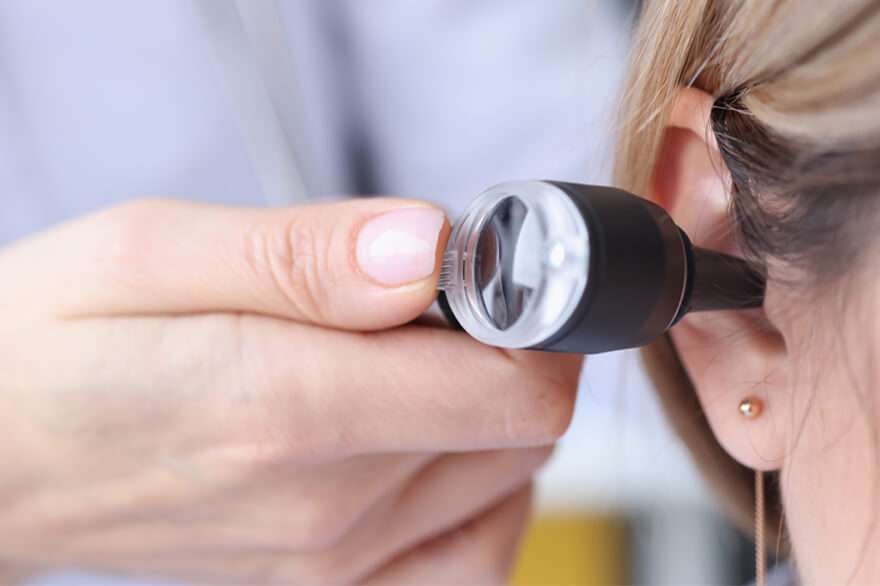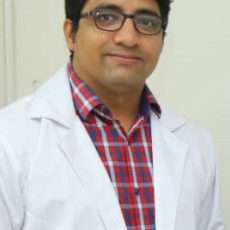
Ear Conditions
Ear Conditions
Dr Aravind’s ENT and EYE hospital located at Suchitra, Hyderabad, provides specialized treatment for all ear disorders. Our surgeons at Dr Aravind’s ENT and EYE hospital are highly trained in both the medical and surgical treatment of hearing loss, ear infections, balance disorders, ear ringing (tinnitus).
If you experience difficulty with hearing problems including tinnitus (ear ringing) and severe hearing loss, Dr Aravind’s ENT and EYE hospital can diagnose the condition and help find the right treatment plan for you.
Common Ear Problems
One of the most common ear problems that cause patients to seek out an ENT doctor is hearing loss. There are mainly three types of hearing loss; conductive, sensorineural, and mixed (both conductive and sensorineural).
Conductive hearing loss occurs due to the problem conducting soundwaves; resulting from issues with an ear canal, eardrum and/or the three bones connected to the eardrum. Often there is a buildup of material in the ear, such as ear wax or fluid, which must be eliminated.
Problems with the inner ear are related to Sensorineural hearing loss. This type of loss involves damage to the nerves which may be related to ageing or from exposure to loud noise (noise-induced hearing loss). This type of hearing loss is mostly associated with hearing aids.
Other common ear problems include ear infections in young children and infants; tinnitus, a roaring in the ears; and Meniere’s diseases, which may be the result of fluid problems in your inner ear, the symptoms of which include dizziness and tinnitus. A visit to an ENT specialist at our hospital will help exactly point out the source of the problem and inform the treatment.
Ear Wax
Earwax blockage occurs when earwax (cerumen) becomes too hard to wash away naturally or accumulates in your ear.
Earwax is a natural part of your body’s defences and is helpful. It lubricates, cleans and protects your ear canal by trapping dirt and slows down the growth of bacteria.
If earwax blockage becomes a problem, Dr Aravind’s ENT and EYE Hospital take simple steps to remove the wax safely.
Don’t try to dig it out
Do not attempt to dig out hardened or excessive earwax with available items, such as a paper clip, a cotton swab or a hairpin. You may push the wax far into your ear and cause serious damage to the lining of your eardrum or ear canal.
Our specialists at Dr Aravind’s ENT and EYE Hospital can determine whether you have earwax blockage by looking in your ear with special instruments that lights and magnifies your inner ear (otoscope).
Causes
The wax in the ears is secreted by glands in the skin that lines the outer half of the ear canals. Tiny hairs and the wax in ear canals trap dust and other foreign particles that potentially damage deeper structures, such as your eardrum.
A small amount of earwax regularly makes its way to the opening of the ear in most people, it gets washed away or falls out and new wax is secreted to replace it. If the secretion of your earwax is excessive or if it isn’t cleared effectively, it may build up and block your ear canal.
Earwax blockages commonly occur when you try to clean your ears on your own by using cotton earbuds or other items in your ears. This most of the time just pushes wax deeper into the ear, rather than removing the wax.
Symptoms
Signs and symptoms of earwax blockage may include:
- Earache
- The feeling of fullness in the affected ear
- Ringing or noises in the ear (tinnitus)
- Decreased hearing in the affected ear
- Dizziness
- Cough
When to see a doctor
If you’re experiencing the symptoms of earwax blockage, talk to us.
Many people think they can deal with earwax on their own, but, signs and symptoms could indicate another condition. There’s no way to know if you have excessive earwax without having someone, usually, a doctor looks in your ears. Symptoms such as earache or decreased hearing don’t necessarily mean you have wax buildup. It’s possible you may have another medical condition involving your ears that may need medical attention.
Wax removal is done most safely by a specialized doctor. Your ear canal and eardrum are highly delicate and can be damaged easily by excess earwax. Don’t try to remove earwax yourself with any device placed into your ear canal, especially if you have had ear surgery, have ear pain or drainage or have a hole (perforation) in your eardrum.
Pus from Ear
Ear infections and pain though are common conditions but can cause serious discomfort to the person. While sometimes pain is the only symptom, a more serious condition may be accompanied by pus or other discharges.
Pus is generally associated with bacterial buildup. If pus or other fluids are coming out of your ears, consult your doctor to prevent the symptoms from getting worse.
What causes pus discharge from the ear?
Pus, fluid, or blood accumulating in or discharging from the ear, may be an indication of a serious condition, hence ear drainage shouldn’t be ignored.
Following are some of the potential causes of discharge or pus from your ear.
Ear infection
Middle ear infections (In medical terms called Acute Otitis Media) — are common, particularly in children. They affect the middle portion of the ear and are mostly caused by a bacterial or viral infection.
Swimmer’s ear
Swimmer’s ear is an infection that affects the outer ear canal (otitis externa). It usually happens when water gets trapped in your ear, after swimming, thus allowing bacteria or fungus to grow.
Skin cyst
Noncancerous abnormal growth (cholesteatoma) can develop in the middle portion of the ear behind the eardrum. They often develop as cysts and may increase in size over time.
Foreign object
Any foreign object that can get stuck in your ear can cause pain, drainage, and damage. This is particularly a problem for children.
Ruptured eardrum
Pressure caused by fluid buildup in the middle ear, often from an infection can result in a ruptured eardrum. This condition can also result from trauma or an ear injury or from a foreign body resulting in fluid or pus draining out from the ear.
Outlook
Ear fluid discharge cannot be ignored as the appearance of pus may be a sign of an ear infection or an underlying condition that should be discussed with your doctor.
If this condition is paired with intense pain, a head injury, or hearing loss, seek immediate medical attention.
Treatment by your doctor is often necessary to prevent or manage recurring conditions, however, minor infections may clear on their own.
Contact Dr Aravind’s ENT and EYE Hospital, Suchitra-Kompally, for more details
Conditions Treated
- • Ear Pain
- • Ear Discharge
- • Ear Wax
- • Ear Infections
- • Hearing Loss
- • Dizziness
- • Deafness in kids
- • Balance Disorders
- • Tinnitus (Ear Ringing)
- • Perforated Eardrum
Meet Our Doctors

Dr. Aravind Kumar Alwala
MBBS (Osm)., MSENT specialist, Chief Endoscopic Sinus Surgeon
Make an Appointment
Dr. Laxmi Priya Pallapolu
MBBS (Gold Medalist)., MS Ophthal (FICO)Consultant Ophthalmologist, Chief Phaco Surgeon
Make an Appointment